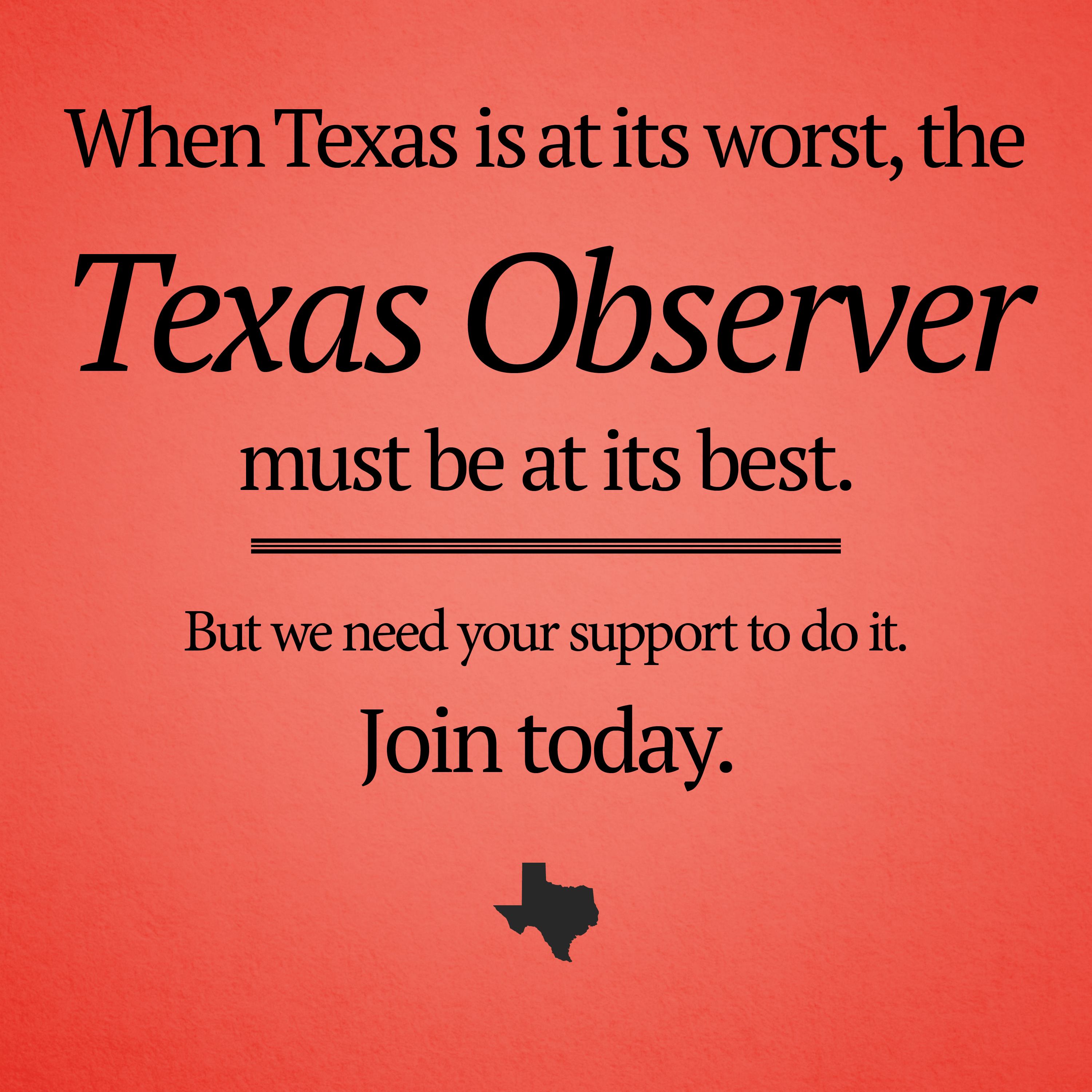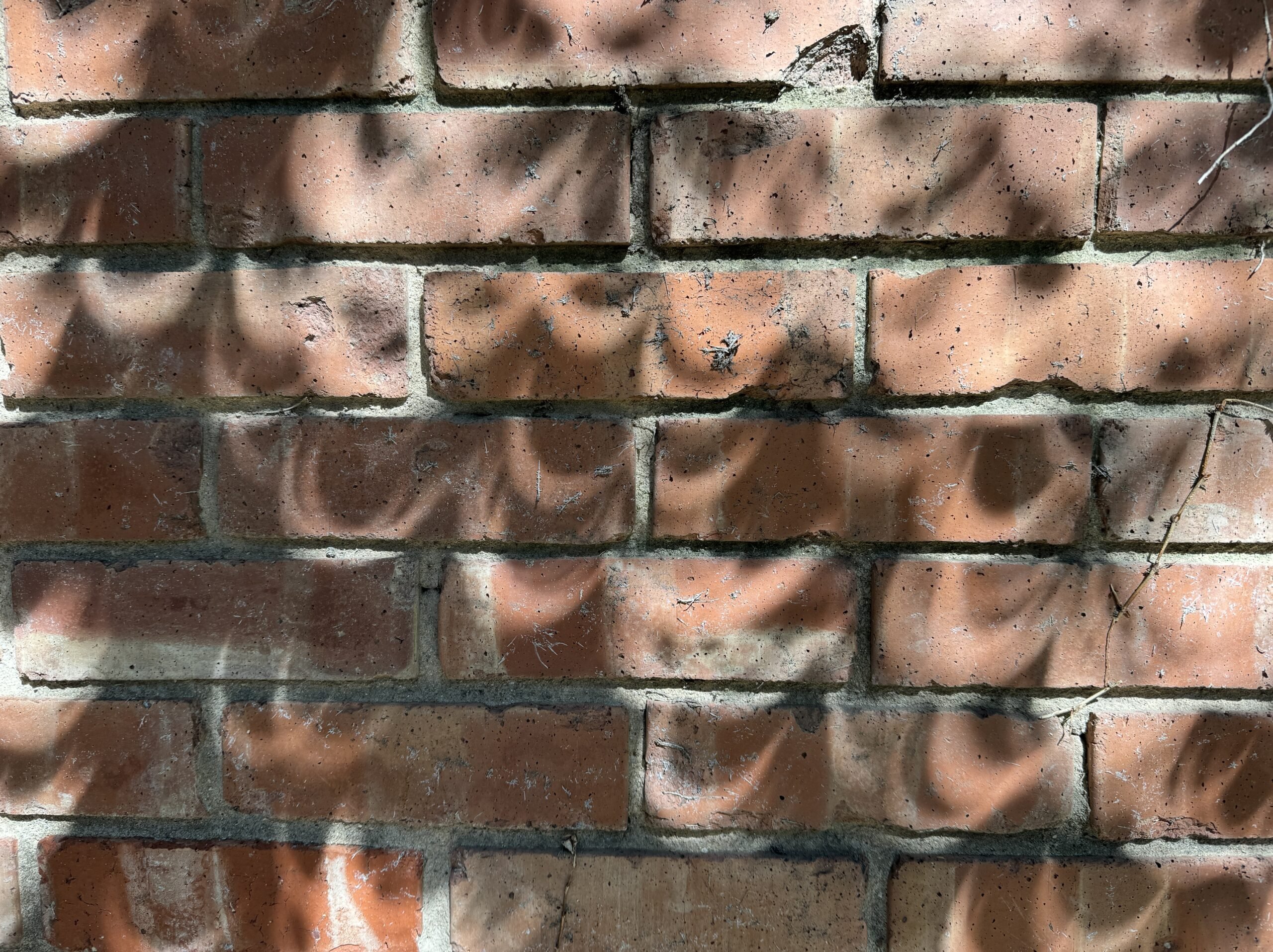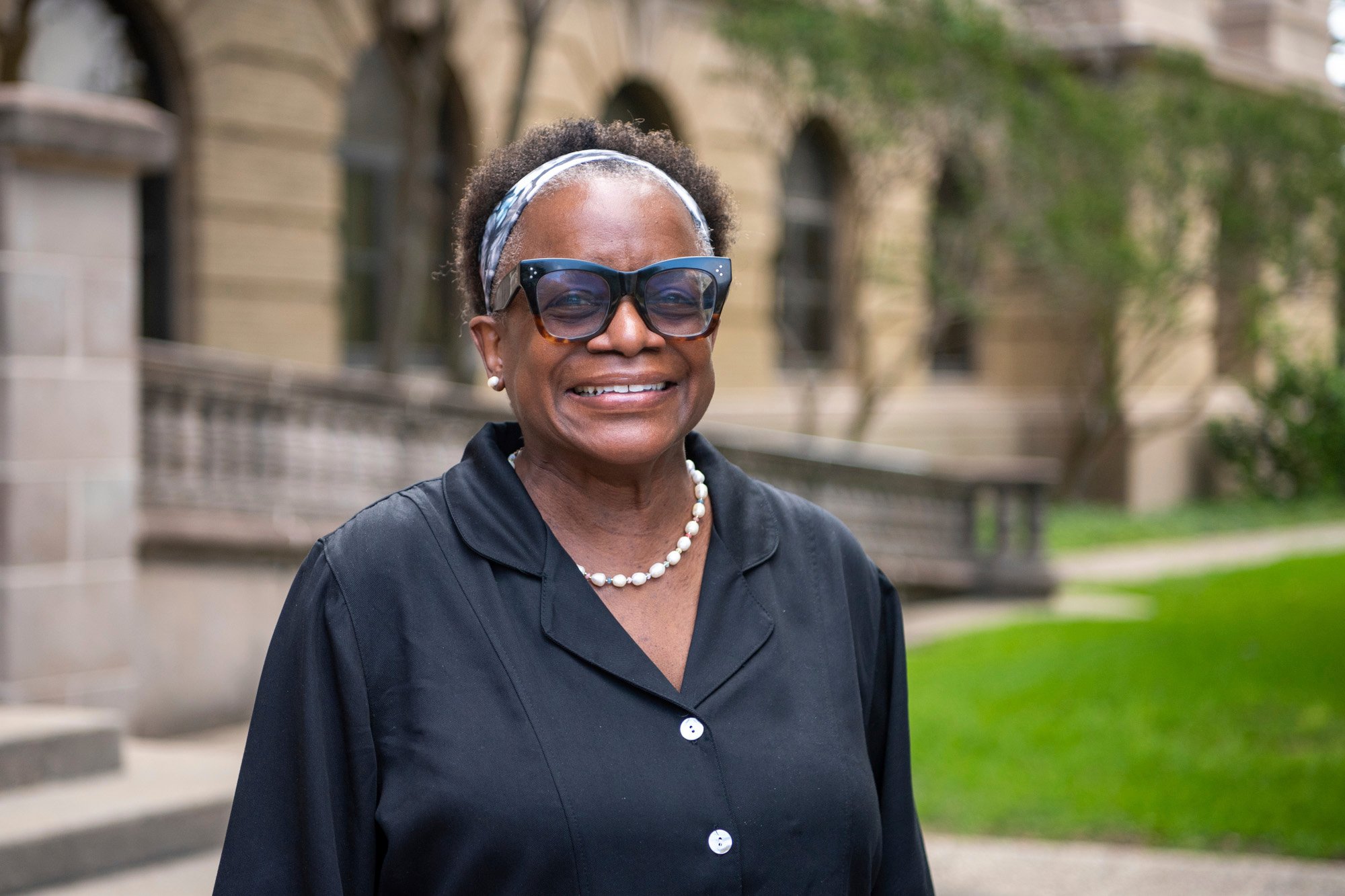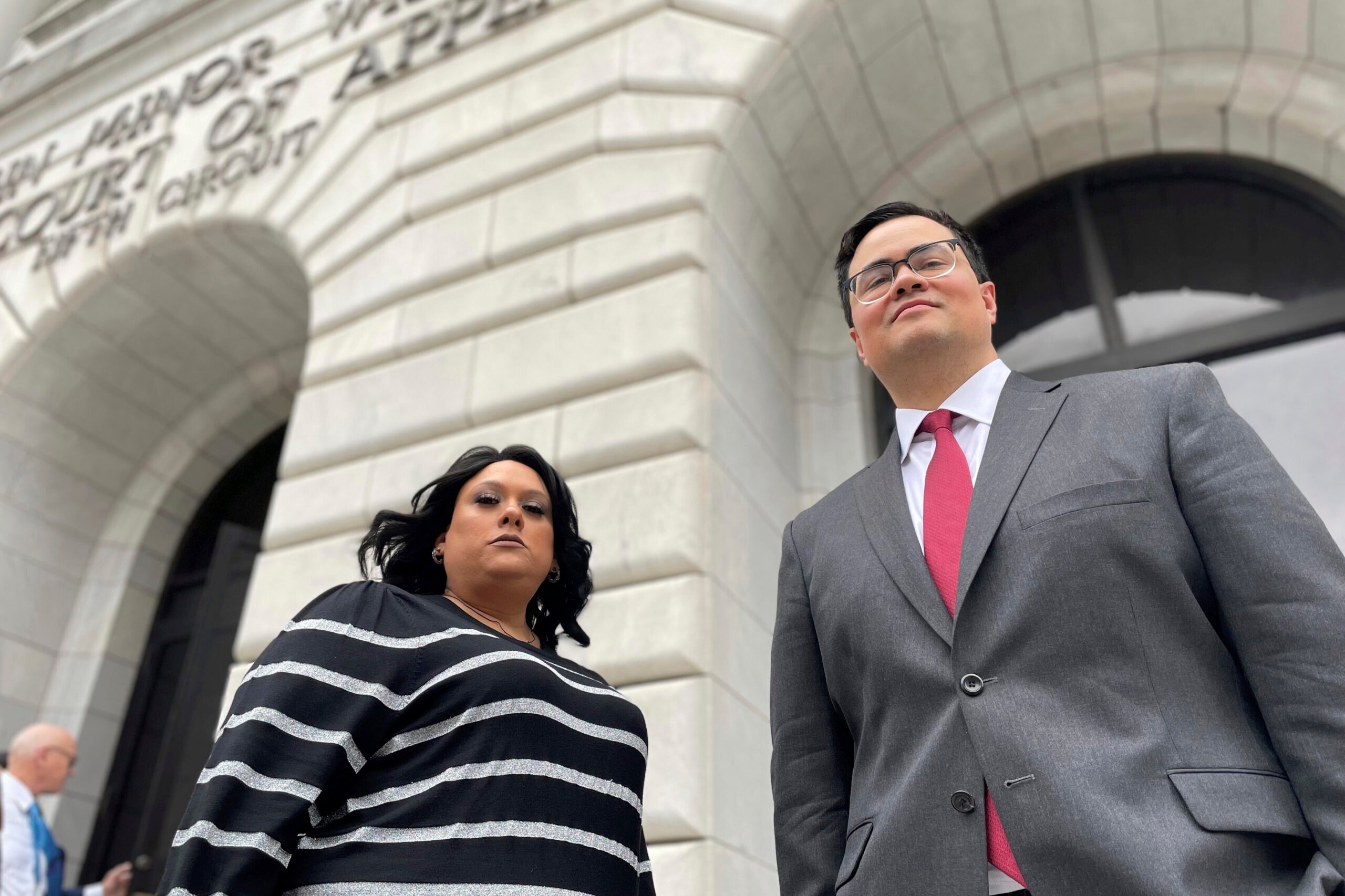
The Judges Who Ruled Against La Gordiloca Are Criminalizing Watchdog Journalism
One dissenting judge said the decision guarantees the media “will only be able to report information the government chooses to share.”
Above: Online journalist Priscilla Villarreal and her attorney, J.T. Morris, stand outside a federal courthouse in New Orleans
Editor’s Note: The following is an update to our feature story about citizen journalist Priscilla Villarreal, originally published in the January/February 2024 issue of our magazine.
A collaboration between the Texas Observer and the National Association of Hispanic Journalists’ palabra., which brings to light high quality stories for and about Latino and other communities
In a blow to First Amendment advocates, a majority of the judges on the U.S. Fifth Circuit Court of Appeals decided Tuesday not just to throw out a lawsuit by the Laredo citizen journalist and provocateur Priscilla Villarreal, who goes by the name La Gordiloca, but to endorse an expansive view of government power that permits police to arrest reporters for seeking basic information through backchannels.
The majority opinion, authored by Judge Edith Jones, appointed by former President Ronald Regan, finds that local officials were reasonable when they used an obscure Texas law to arrest Gordiloca and thereby criminalize a wide range of what has been considered basic accountability journalism. The ruling applies in Texas, Louisiana, and Mississippi.
“Any law enforcement agency basically has a green light right now to go out and arrest and threaten or detain journalists who publish documents that are leaked from the government,” said attorney Daxton “Chip” Stewart, a media law professor at Texas Christian University, in an interview about the ruling. “And … if that journalist spends a night in jail, they don’t have a remedy and can’t sue for a civil rights violation.”
“Any law enforcement agency basically has a green light right now to go out and arrest and threaten or detain journalists who publish documents that are leaked from the government.”
The court sidestepped addressing the Texas law’s constitutionality, and Jones couched her findings on whether Laredo officials knowingly violated Villarreal’s civil rights when they arrested her in 2017.
“Villarreal and others portray her as a martyr for the sake of journalism,” Jones wrote for the majority. “That is inappropriate. She could have followed Texas law, or challenged that law in court, before reporting nonpublic information from the backchannel source. By skirting Texas law, Villarreal revealed information that could have severely emotionally harmed the families of decedents and interfered with ongoing investigations.”
Jones’ sweeping language indicates that the government can criminalize journalism like the leaked video and other records that exposed police failures during the May 24, 2022, shooting that killed 19 students and two teachers at Robb Elementary in Uvalde, Stewart said.
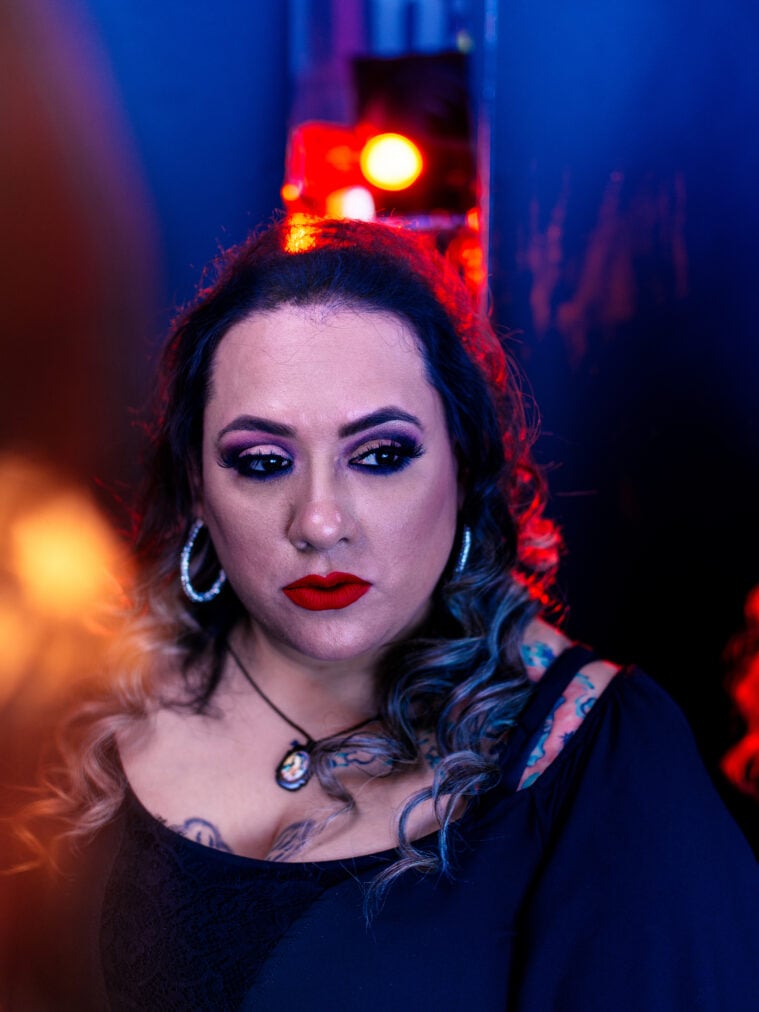
updates via video with a heavy
make-up and dramatic flair. Josh Huskin for the Texas Observer
In a dissent, Judge James Graves, an appointee of former President Barack Obama, wrote that such logic means journalists “will only be able to report information the government chooses to share.”
The sharply divided Fifth Circuit and impassioned dissenting opinions—three Trump appointees from Texas and one George W. Bush appointee broke with the conservative majority—increases the likelihood the U.S. Supreme Court would take the case up on appeal. On Wednesday, Villarreal said that was her next step.
In a text Wednesday, she wrote that she wants “to make an impact, to make a point that what was done to me isn’t right, they violated constitutional rights and someone needed to set these people straight. The Constitution guarantees our basic liberties, and I’m hopeful the Supreme Court protects those liberties here.”
“They violated constitutional rights and someone needed to set these people straight. The Constitution guarantees our basic liberties, and I’m hopeful the Supreme Court protects those liberties here.”
Villarreal is a complex and controversial figure in Laredo whose nickname translates to “Chubby Crazy Lady.” She eschews the ethics and practices of traditional media outlets. But despite, or because her persona more closely resembles a social media influencer than a journalist—she delivers breaking news in expletive-filled Spanish rants on her “Lagordiloca News Laredo Tx” Facebook page—Villarreal has developed a following greater than any of Laredo’s legacy media outlets. The Texas Observer and palabra. took a deep dive into her story and her legal saga earlier this month.
Villarreal’s lawsuit stems from her 2017 arrest under Texas’s law against misuse of official information. Laredo police had alleged she broke the law by texting a source in the department for details about a federal official who died by suicide on a major highway. A judge later threw out the charges, and Villarreal filed a lawsuit alleging top officials at the Laredo Police Department and Webb County District Attorney’s Office violated her civil rights by orchestrating her arrest in retaliation for her reporting. It eventually reached the Fifth Circuit, where a panel of three judges initially ruled in her favor.
On Tuesday, nine of the 16 judges who took part in a rehearing of her case overturned that decision. Villarreal and her attorney said they plan to appeal. In an email, her attorney JT Morris wrote that “the majority decision spurns that core First Amendment protection, allowing public officials to evade accountability when they jail Americans who say something the government disapproves of.”
Webb County District Attorney Isidro Alaniz, who along with First Assistant Marisela Jacaman is among those named in Villarreal’s lawsuit, wrote in a text Wednesday: “The Fifth Circuit has spoken and said it best. We will continue doing our job of protecting victims and their families.”
The judges could have thrown out Villareal’s case without endorsing Jones’s view, which she had previewed in oral arguments last year: that governmental bodies can find ways to arrest reporters for publishing leaked information without running afoul of the U.S. Constitution.
The court was being asked to decide only whether the city and county officials involved in Villarreal’s arrest were entitled to qualified immunity, a judicial doctrine that protects government employees from lawsuits over most of their on-the-job activity. To overcome qualified immunity, Villarreal had to prove that her rights had been violated and that the officials should have known that when they arrested her.
The Texas law used against Villarreal, which legal experts have said was written to criminalize activity like bid rigging, makes it illegal to solicit for commercial gain information that would not be released under the Texas Public Information Act.
But First Amendment advocates—free speech organizations across the political spectrum filed friend of the court briefs supporting the blogger—have noted that most journalism is for commercial gain and that local officials twisted the law’s intent to find a pretext for her arrest.
Villarreal’s lawyers have argued that anyone in the United States has a right to do what she did: ask a government official for information about a public event. In court, they highlighted her status as a journalist, arguing that reporters use sources to get information so often that the government should be on notice that such behavior is protected by the Constitution. The fact that the officials spent months finding a little-used state statute to arrest Villarreal is further evidence they should have been aware of the constitutional implications of their actions, her lawyers argued.
Jones in her opinion responded that the officials were reasonable to believe “the State of Texas chose to protect certain information from immediate disclosure in order to ensure that the government can function.”
“If citizens possessed some overarching constitutional right to obtain information from the government, laws like the [Texas Public Information Act] and the Freedom of Information Act would be superfluous,” she added.
Those sentiments run contrary to the spirit of previous Supreme Court rulings, which in the latter half of the 20th Century gave broad protections to journalists reporting leaked information and treated public information laws as matters separate from First Amendment rights, legal experts said.
Jones drew a distinction, writing that “a right to publish information that is no longer within the government’s control is different from what Villarreal did: she solicited and received nonpublic information from a public official for personal gain.”
But Villarreal’s supporters argue that the First Amendment right to petition the government protects anyone’s, including journalists’, rights to ask questions.
“This is very, very unsettling … because they are basically saying you can’t do certain things that are obviously something you would do as a journalist.”
“This is very, very unsettling if you are a journalist in Texas, Louisiana, or Mississippi, because they are basically saying you can’t do certain things that are obviously something you would do as a journalist,” said Anya Bidwell, an attorney for the libertarian-leaning public interest law firm the Institute for Justice, which also filed an amicus brief on Villarreal’s behalf. “Working with a source figuring out details of a story, that’s just basic journalism. And the idea you could be thrown in jail for it is disturbing.”
In her opinion, Jones expressed distaste with Villarreal’s ethics and practices, writing: “Mainstream, legitimate media outlets routinely withhold the identity of accident victims or those who committed suicide until public officials or family members release that information publicly. Villarreal sought to capitalize on others’ tragedies to propel her reputation and career.”
In his dissent, Graves countered that the majority opinion “insinuates that Villarreal’s First Amendment rights are somehow diminished because she makes a modest living while exercising them.”
Four judges wrote dissents, but in a show of solidarity, largely joined each others’ opinions. Graves touted the long history of U.S. journalists breaking important news about government abuses through leaked information.
“There is simply no way such freedom can meaningfully exist unless journalists are allowed to seek non-public information from the government,” he wrote.
Judge James Ho, a Donald Trump appointee and former Texas solicitor general, both joined Graves and wrote his own fiery dissent, adding: “The Constitution doesn’t mean much if you can only ask questions approved by the state. Freedom of speech is worthless if you can only express opinions favored by the authorities. The government may not answer or agree—but the citizen gets to ask and to speak.”
